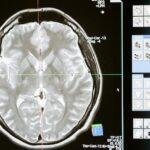
Personality is a complex topic that scientists have been studying for many years.
There is no one answer to the question of “when does personality fully develop?” because everyone’s personality is unique.
However, there are some generalizations that can be made about when different aspects of personality start to emerge.
In this blog post, we will discuss the development of personality throughout childhood and adolescence and offer some tips for parents who want to help their children grow to their fullest potential!
The Development of Personality
It is no secret that our personality develops throughout our lives. We are constantly growing and changing, and our personalities are just a reflection of that.
But how exactly does our personality develop?
There are a number of theories out there about how personality develops, but one of the most widely accepted is the psychoanalytic theory.
This theory was developed by Sigmund Freud, and it suggests that our personality is shaped by our early childhood experiences.
According to Freud, there are three parts to our personality: the id, the ego, and the superego.
- The id: is the part of our personality that is driven by our basic instincts and desires. It is the part of us that wants what we want when we want it.
- The ego: is the part of our personality that tries to balance our id’s desires with reality.
It is the part of us that knows we can’t always have what we want, and it tries to find a compromise between our desires and what is realistic.
- The superego is the part of our personality that internalizes society’s rules and values. It is the voice in our head that tells us what we should and shouldn’t do.
All three of these parts of our personality play a role in shaping who we are.
Our early childhood experiences help to shape how each of these parts develops.
If we have a happy and secure childhood, then our id, ego, and superego will develop in a healthy way.
However, if we have a difficult or traumatizing childhood, then these parts of our personality can become distorted. This can lead to mental health issues later on in life.
The Importance of Personality Development
When it comes to success in life, there are many factors that come into play. Hard work, talent and luck all play a role in whether or not someone will be successful.
However, there is one factor that is often overlooked when it comes to success: personality development.
Many people believe that success is solely about working hard and being talented.
While these things are certainly important, they are not the only things that matter.
Personality development is also crucial for success.
People with well-developed personalities are more likely to be successful than those without.
This is because well-developed personalities tend to be more outgoing, confident and persuasive. These qualities are essential for success in many fields.
Outgoingness is important because it allows people to network and builds relationships.
Confidence is important because it allows people to sell themselves and their ideas.
Persuasiveness is important because it allows people to convince others of their point of view.
People with well-developed personalities tend to have the edge over those without when it comes to success. If you want to be successful, start working on your personality development today.
The Different Aspects of Personality

Personality is often thought of as the sum of all of our individual characteristics, but it is much more than that.
It is the ability to interact with the world around us in a way that is unique to each individual.
Personality has many different aspects, all of which contribute to making us who we are. Some of these aspects include our:
- Physical appearance
- Attitudes
- Beliefs
- Values and morals
- Behavior.
Each of us has a unique combination of these aspects that makes up our personality. It is what makes us different from everyone else.
Our personality is what sets us apart and makes us unique.
The Role of Parents in Personality Development
Parents play an important role in their children’s personality development.
Studies have shown that parents can influence their children’s personalities in a number of ways.
For example, parents who are warm and supportive tend to have children with higher self-esteem and empathy.
On the other hand, parents who are critical and demanding tend to have children who are more anxious and aggressive.
There are a number of different theories about how personality develops. One of the most popular theories is Freud’s Psychoanalytic theory.
According to this theory, personality develops through a series of stages, each of which is marked by a different conflict that must be resolved.
The first stage
The first stage, known as the oral stage, begins at birth and lasts until around 18 months.
During this stage, the focus of the child’s pleasure is the mouth. This pleasure is achieved through activities such as sucking, biting, and chewing.
If the child does not resolve the conflicts associated with this stage, they may develop certain personality traits later in life.
For example, they may become fixated on oral pleasures such as smoking or overeating. They may also become excessively dependent on others or overly compliant.
The second stage
The second stage of Freud’s theory is known as the anal stage.
This stage begins around 18 months and lasts until around 3 years old.
During this stage, the focus of the child’s pleasure shifts from the mouth to the anus. This pleasure is achieved through activities such as bowel movements and urination.
If the child does not resolve the conflicts associated with this stage, they may develop certain personality traits later in life.
For example, they may become fixated on cleanliness or orderliness. They may also become stingy or stubborn.
The third stage
The third stage of Freud’s theory is known as the phallic stage.
This stage begins around 3 years old and lasts until around 6 years old. During this stage, the focus of the child’s pleasure shifts from the anus to the genitals.
This pleasure is achieved through activities such as masturbation and exploration of one’s own body.
If the child does not resolve the conflicts associated with this stage, they may develop certain personality traits later in life.
For example, they may become fixated on sex or overly concerned with their physical appearance. They may also become narcissistic or sexually promiscuous.
What are some tips for parents to help their children?

Here are some tips for parents on helping their children develop their personality:
Encourage them to express themselves
Allow your children to express themselves freely, without judgment or criticism. This will help them to develop a strong sense of self-identity.
Encourage exploration and curiosity
Encourage your children to explore their interests and ask questions about the world around them. This will help them to develop critical thinking skills and a thirst for knowledge.
Teach them about empathy
Help your children understand the perspectives of others and how their actions can affect other people positively or negatively.
This will encourage them to be more sensitive and considerate individuals.
Be a role model
As a parent, it’s important to be a good role model for your children.
This means setting a positive example in the way you interact with others and how you deal with challenges and setbacks.
It also means modeling healthy behaviours, such as exercising regularly and eating well.
Conclusion
Overall, there are many things parents can do to help their children develop their personalities.
By encouraging individuality, exposing them to new experiences, and being supportive in their lives, parents can play an important role in helping their children grow into well-rounded individuals.


